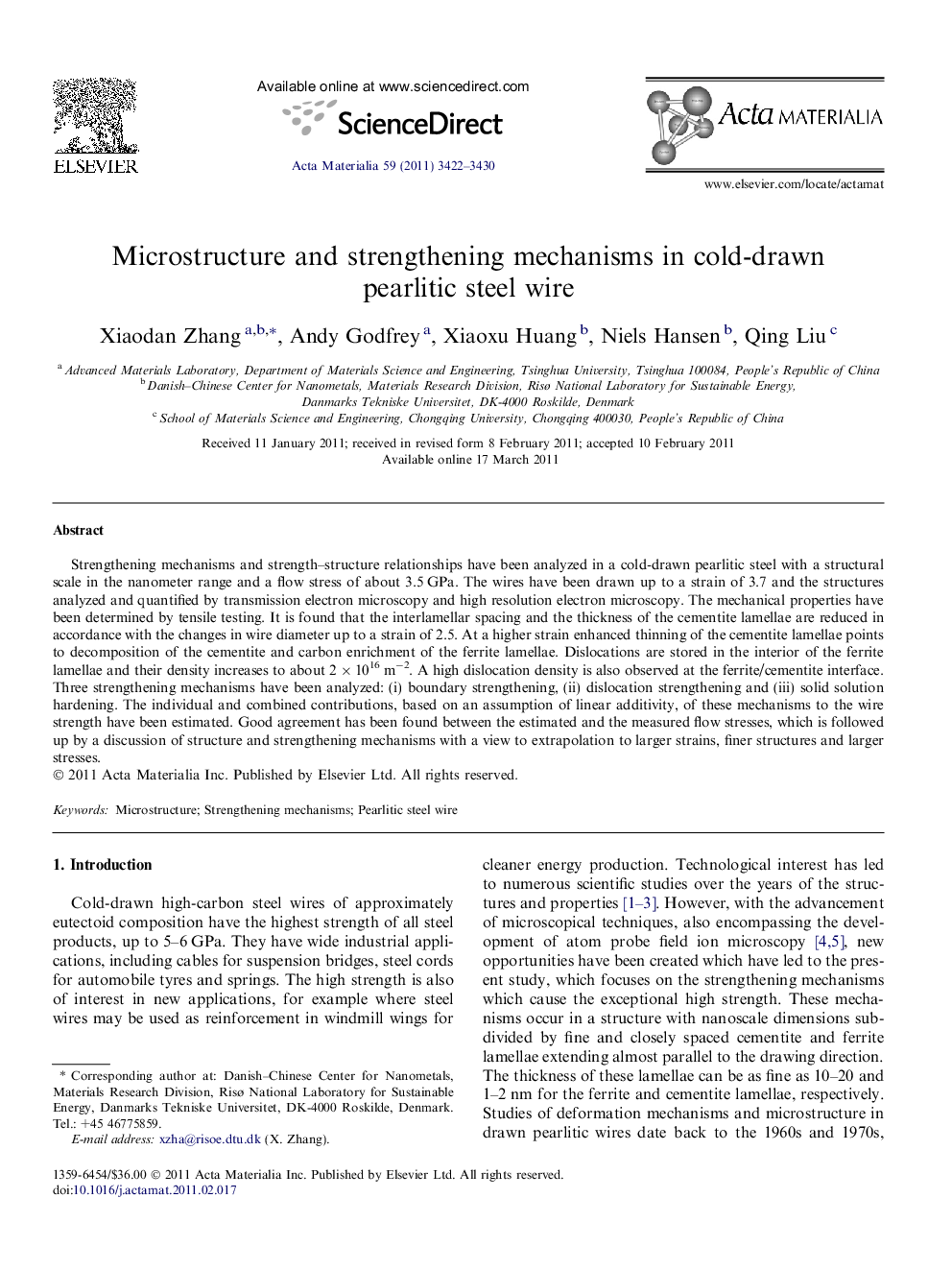| کد مقاله | کد نشریه | سال انتشار | مقاله انگلیسی | نسخه تمام متن |
|---|---|---|---|---|
| 1447141 | 988636 | 2011 | 9 صفحه PDF | دانلود رایگان |

Strengthening mechanisms and strength–structure relationships have been analyzed in a cold-drawn pearlitic steel with a structural scale in the nanometer range and a flow stress of about 3.5 GPa. The wires have been drawn up to a strain of 3.7 and the structures analyzed and quantified by transmission electron microscopy and high resolution electron microscopy. The mechanical properties have been determined by tensile testing. It is found that the interlamellar spacing and the thickness of the cementite lamellae are reduced in accordance with the changes in wire diameter up to a strain of 2.5. At a higher strain enhanced thinning of the cementite lamellae points to decomposition of the cementite and carbon enrichment of the ferrite lamellae. Dislocations are stored in the interior of the ferrite lamellae and their density increases to about 2 × 1016 m−2. A high dislocation density is also observed at the ferrite/cementite interface. Three strengthening mechanisms have been analyzed: (i) boundary strengthening, (ii) dislocation strengthening and (iii) solid solution hardening. The individual and combined contributions, based on an assumption of linear additivity, of these mechanisms to the wire strength have been estimated. Good agreement has been found between the estimated and the measured flow stresses, which is followed up by a discussion of structure and strengthening mechanisms with a view to extrapolation to larger strains, finer structures and larger stresses.
► Interlamellar spacing and thickness of cementite lamellae decrease in accordance with change in diameter of drawn pearlitic steel wire up to strain of 2.5.
► At higher strains enhanced thinning of cementite lamellae points to decomposition of cementite and carbon enrichment of ferrite.
► Dislocations are stored in ferrite lamellae and their density increases to about 2 × 1016 m−2 as determined by HRTEM.
► Contributions of boundary strengthening, dislocation strengthening and solid solution hardening are estimated and by addition. Good agreement is found between estimated and measured flow stress.
Journal: Acta Materialia - Volume 59, Issue 9, May 2011, Pages 3422–3430